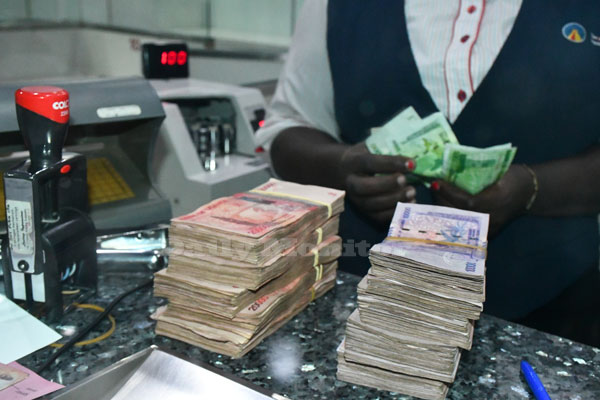URA posts Shs499b revenue deficit in 2021/22 first quarter

A slowdon in economic activities has impacted revenue perfromance. PHOTO/EDGAR R BATTE
What you need to know:
- The deficit was mostly a result of a decline in domestic taxes due to underperfomance of the economy during the first half of the 2021/22 financial year.
Uganda Revenue Authority (URA) has registered a shortfall of Shs499b due to revenue deficits resulting from underperformance of domestic taxes.
The shortfall came amid a 9.57 growth in revenue collection, which, during the first quarter of the 2021/22 financial year, grew to more than Shs4.4 trillion against a Shs4.9 trillion target.
During the period, URA said, revenue expansion was mainly driven by administrative initiatives such as arrears management, which resulted into a revenue recovery of about Shs322b and cargo management to curb under and mis-declaration, which led to revenue gain of Shs11.51b.
Speaking at the release of the revenue performance report for the quarter ended September in Kampala yesterday, URA Commissioner General John Musinguzi Rujoki, said the 9.57 per cent expansion in revenues signaled recovery of the economy, whose slowdown had during the period under review impacted domestic taxes.
During the period, domestic tax collections stood at Shs2.6 trillion against a Shs3 trillion, registering a revenue shortfall of Shs440b.
Customs collections, despite registering an 8.88 per cent growth posted a shortfall of Shs106b.
The report indicates that 74 per cent of revenue was generated from five sectors, among which included wholesale and retail trade (Shs1.3 trillion or 30.1 per cent), manufacturing (Shs1 trillion or 23.61 per cent), financial activities (Shs353billion 7.82 per cent), information and communication technology (Shs338b or 2.65 per cent) and public administration Shs202b or 4.49 per cent).
Arts, entertainment and recreation registered a 97 per cent growth due to remittance of arrears which stood at Shs7.22b. Water supply, sewerage, waste management and remediation activities, also benefited from payment of arrears, growing by 64 per cent to Shs9.62b.
The mining and quarrying grew by 41 per cent, mainly due to remittances resulting from court settlements from oil and gas activities.
However, during the period, sectors such as electricity, gas, steam and air conditioning registered a decline with revenues falling 17 per cent while construction revenues fell by 15 per cent. Real estate registered a revenue decline of 4.6 per cent.
This decline, according to the report is partly explained by continued Government restriction on some sectors which has affected the supply chains, resulting into disruption of industries such as restaurants, hotels, events, institutions, operating below capacity.
Value added tax registered a deficit of Shs223b while Local Excise Duty posted a shortfall of Shs77b. Corporate tax and Rental Income, registered deficits of Shs24b and Shs19b respectively.
International Trade tax also registered a shortfall due to deficits registered by petroleum duty (Shs43.34b), import duty (Shs68.27b) and withholding taxes (Shs135.8b).
Targets
URA will seek to collect Shs17.4 trillion for the remaining period of the 2021/22 financial year, which 77 per cent of the annual target of Shs22.3 trillion. Shs6.1 trillion is expected in the second quarter.
Mr Musinguzi say this will be achieved through interventions such as alternative dispute resolution, voluntary compliance and embarking on a service-centric approach.
This will be in addition to strengthening of Digital Tax Stamps and Electronic Fiscal Devices by expanding on the traced and tracked products beyond the current eight to cooking oil, fruit and vegetable juices, non-alcoholic, alcoholic and other fermented products.
Deficits
During the period, sectors such as electricity, gas, steam and air conditioning registered a decline with revenues falling by 17 per cent while construction fell by 15 per cent. Real estate registered a revenue decline of 4.6 per cent.
This, according to the report, was partly due to continued government restriction on some sectors which has affected supply chains, disrupting a number of sectors such as restaurants, hotels, events, institutions, operating below capacity. Value Added Tax registered a deficit of Shs223b.
While Local Excise Duty posted a shortfall of Shs77b, Corporate tax and Rental Income, registered deficits of Shs24b and Shs19b respectively.
International Trade tax also registered a shortfall due to deficits registered by petroleum duty (Shs43.34b), import duty (Shs68.27b) and withholding taxes (Shs135.8b).





